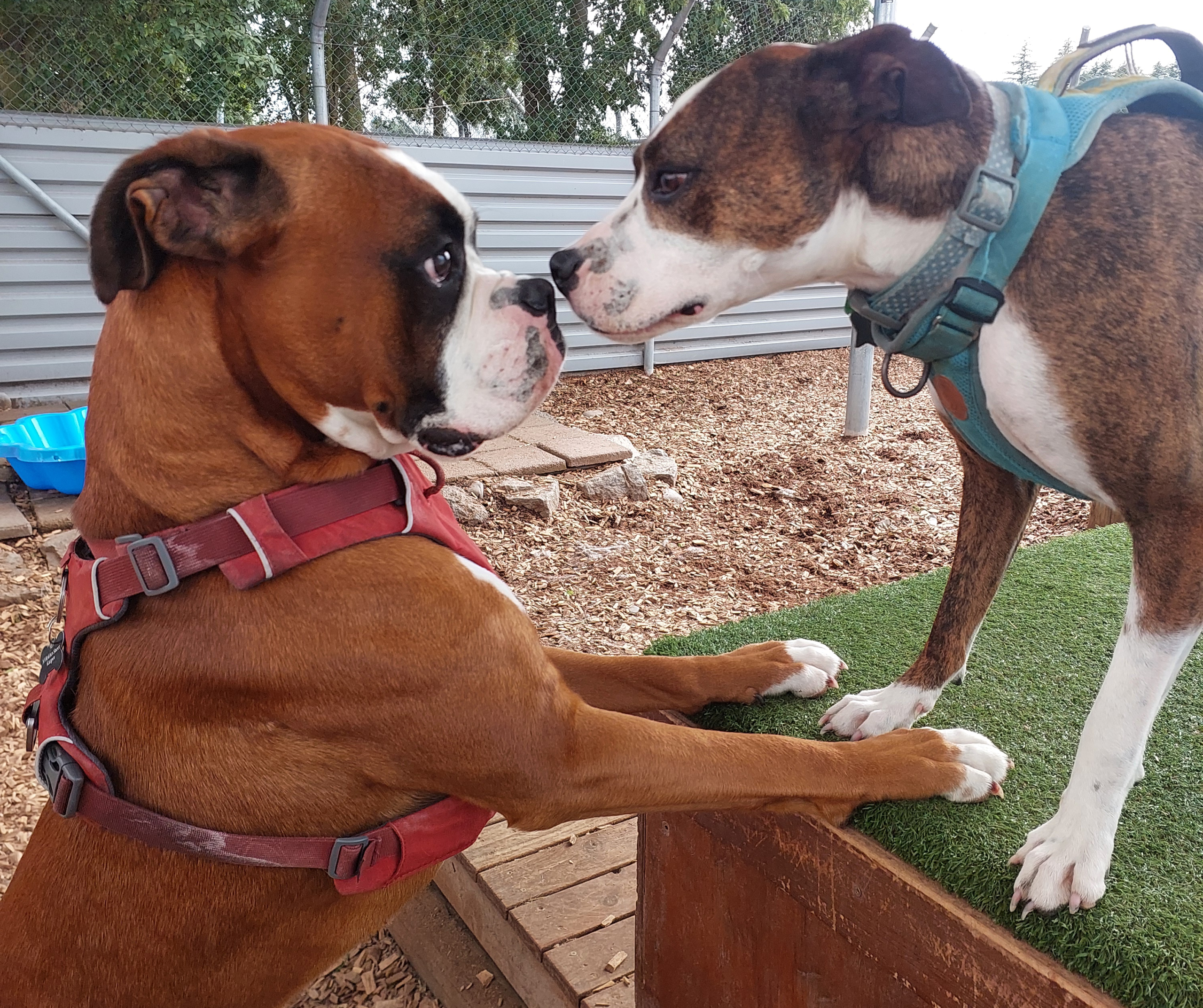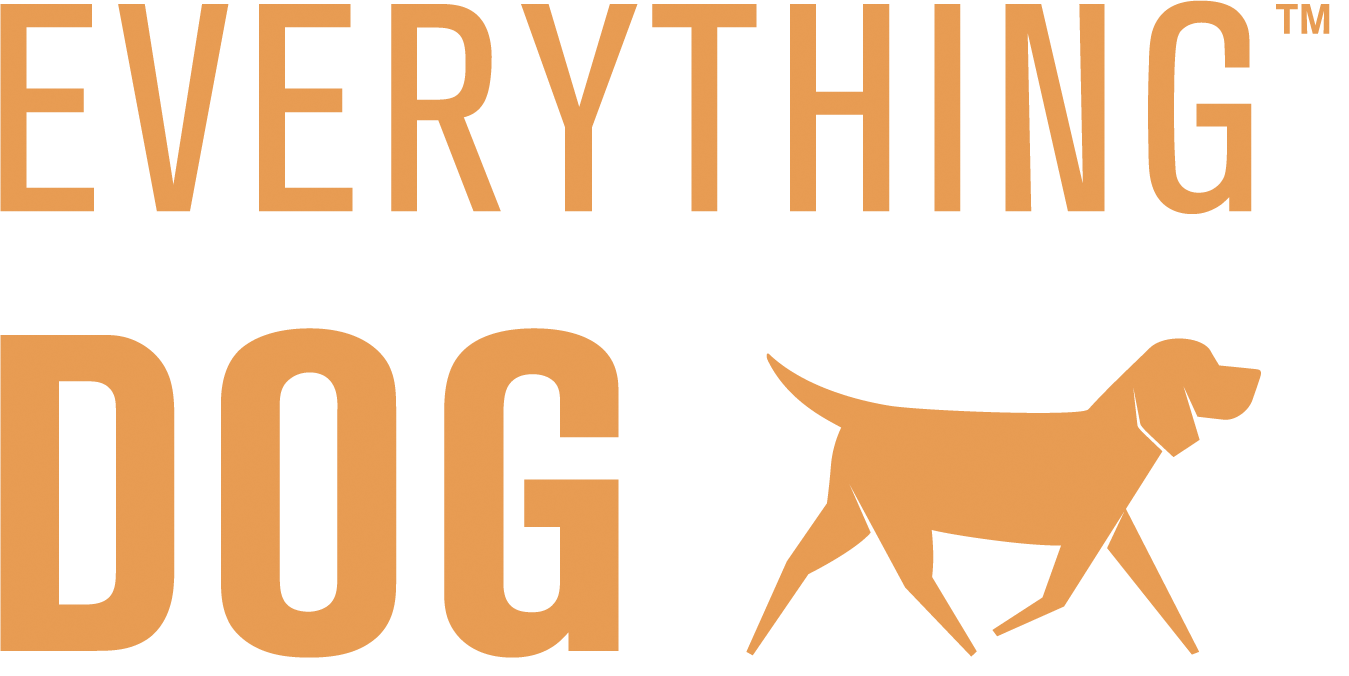Doggy Day Care: What Do You Need to Know

Doggy Day Care: What Do You Need to Know (Before You Drop Off Your Pooch)?
Whether you’re a new dog parent or just curious about adding more tail-wagging joy to your dog’s weekly routine, you’ve probably wondered: What is dog day care, really? And does my dog need it, or even enjoy it?
So let’s break down the ins, outs, and in-betweens of doggy day care, from how it works to what age puppies can start, what socialisation looks like, and whether your dog might need a post-daycare nap and a cuddle (spoiler; probably yes).
What Is Dog Day Care?
Dog day care is a structured environment for dogs to enjoy supervised play, rest, enrichment, and social time while their humans are off doing human stuff.
At Everything Dog, it’s never a one-size-fits-all setup, we tailor care to each pooch’s personality.
Think of it like a play-based school for dogs, with napping allowed
Is It Good for Dogs to Go to Doggy Day Care?
When done right (which we pride ourselves on), yes. Many dogs benefit from:
- Mental stimulation:
- Physical exercise
- Positive human and dog interaction
- Consistent routine
- Emotional regulation
But just like people, not every dog thrives in bustling environments. The key is matching care to character, something we do through assessments and familiarisation visits.
At what Age Can My Puppy Go to Daycare?
Once they’ve received all their core vaccinations, puppies can start daycare. In fact, early exposure to well-supervised group play can prevent future behavioural hiccups like reactivity or overexcitement. The earlier you start, the more likely your puppy builds confidence and social smarts.
Pros and Cons of Doggy Daycare
Pros:
- Builds social skills
- Prevents boredom-induced behaviours
- Offers physical & mental exercise
- Helps with structured routines
- Supports toilet habits
Cons:
- Some dogs may be overstimulated or nervous at first
- Not all dogs enjoy group settings
- May need post-daycare “decompression”
- Doesn’t replace training or home bonding time
We work to minimise every potential downside with tailored care and constant supervision. And if your dog’s better suited to smaller groups or quiet play, we can make that happen.
Do Dogs Get Stressed at Doggy Day Care?
Yes, sometimes. That’s why we never rush introductions. We ease dogs in slowly, watch for signs of stress (like pacing, hiding, or vocalisation), and adapt as needed.
Our goal is never to “push through” discomfort. We build confidence with positive reinforcement, low-pressure environments, and structured support.
Can Dogs Get Overstimulated at Day Care?
It can happen, especially for high-energy or super-social dogs (Woofers). That’s why our day is carefully balanced between play, enrichment, rest, and supervised downtime. A well-paced day equals a happy, balanced pup. (And yes, you may get a very sleepy cuddle monster by pickup time.)
Does Doggy Day Care Toilet Train?
Indirectly, yes! While we don’t teach toilet training formally, regular outdoor breaks and consistent structure can help reinforce good habits, especially when paired with your routine at home.
Does My Dog Need Day Care?
Not every dog needs daycare, but almost all benefit from it, especially if:
They spend long hours alone
You’re noticing boredom-related behaviours like excessive barking and howling, digging or destroying everyday objects
You want to support their social development
You have a high-energy breed that thrives on stimulation
Some dogs come daily or weekly, some monthly, some just occasionally. There’s no “right amount,” only what works best for their wellbeing (and your lifestyle).
Will My Puppy Be Okay at Day Care?
Absolutely, if they’re ready. With vaccinations up to date and a gentle introduction, most puppies adjust quickly. We’re here to guide that journey and make sure it’s safe, structured, and full of happy tail wags.
Final Woof
Doggy day care isn’t about “dropping off and hoping for the best”, it’s a chance to build healthy habits, social confidence, and a joyful daily rhythm. If you’re considering it, start with a chat, an assessment and a familiarisation visit. We’ll help you decide whether day care is the best fit (and make sure your pup’s tail agrees).
